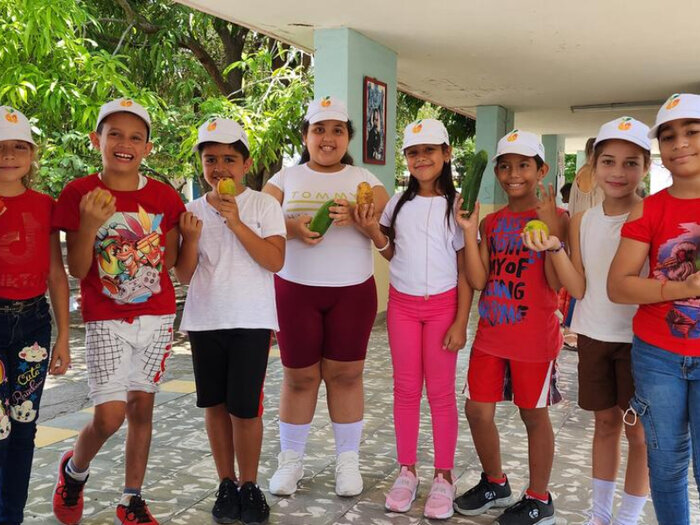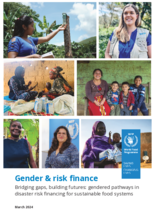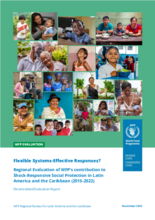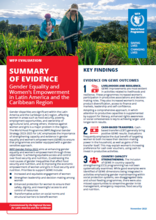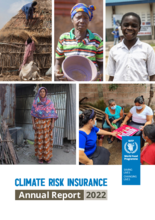Cuba
- 45.4%
- inflation from April 2022 to April 2023
- 22.3%
- of people are aged over 60
- 11.2 million
- population
The largest island in the Caribbean, Cuba ranks 83rd among 191 countries in the Human Development Report 2021-2022, with its position supported by social protection programmes and universal access to basic services.
In 2022, Cuba made great efforts to recover from the impact of the COVID-19 pandemic, extreme weather events, a high dependence on food imports and limited access to diverse, good-quality and safe food – all of which severely affected the domestic economy. As a result, the economy saw a slight recovery. However, inflation reached 40 percent between December 2021 and December 2022. Given that a significant proportion of household expenditure is on food (between 55-65 percent), this sharp rise has posed a major challenge for many Cuban families.
What the World Food Programme is doing in Cuba
-
Resilient and sustainable local food systems
-
WFP prioritizes support to agricultural value chains (from production in the field to final consumption), especially for vegetables and grains, by reducing post-harvest losses, and growing farmers' incomes to ensure a stable food supply for nutrition-sensitive social safety nets. We provide training, technical assistance and equipment to smallholder farmers with a focus on reducing vulnerability, increasing crop yields and improving crop quality.
-
Strengthening social protection systems
-
We support the Government with vulnerability analysis, targeting, digitalization of the beneficiary database and use of cash-based transfers.
-
School feeding
-
WFP supports the Government with school feeding programmes that provide training on healthy eating habits and nutrition to smallholder farmers, teachers, schoolchildren and their families. We also support training on buying and preparing food – including fresh local produce from smallholder farmers – and the design of nutrition-focused menus.
-
Nutrition, communication and education
-
WFP provides specialized nutritious food, including fortified products, with a focus on initiatives such as the mother-and-child programme, and assistance to elderly people through the Sistemas de Atención a Familias – Government-run community canteens that serve highly vulnerable groups. We support nutritional education through training workshops, distribution of educational materials, educational work with children through curricular and extracurricular activities, and the creation of educational aids with the participation of teachers, children and families.
-
Emergency response, resilience and disaster risk management
-
WFP analyses the vulnerability of local food production to drought, hurricanes and earthquakes, as part of efforts to support Cuba in strengthening its early-warning systems and risk assessments. Other planned support includes technical assistance for a comprehensive national disaster risk management strategy, improved technology for data processing, and workshops with communities to improve their risk perception.
Cuba news releases
Go to pagePartners and donors
Find out more about the state of food security in Cuba
Visit the food security analysis pageOperations in Cuba
Contacts
Office
P.M.A., Calle 36 No. 724 entre 7ma y 17, Playa
Cuba

